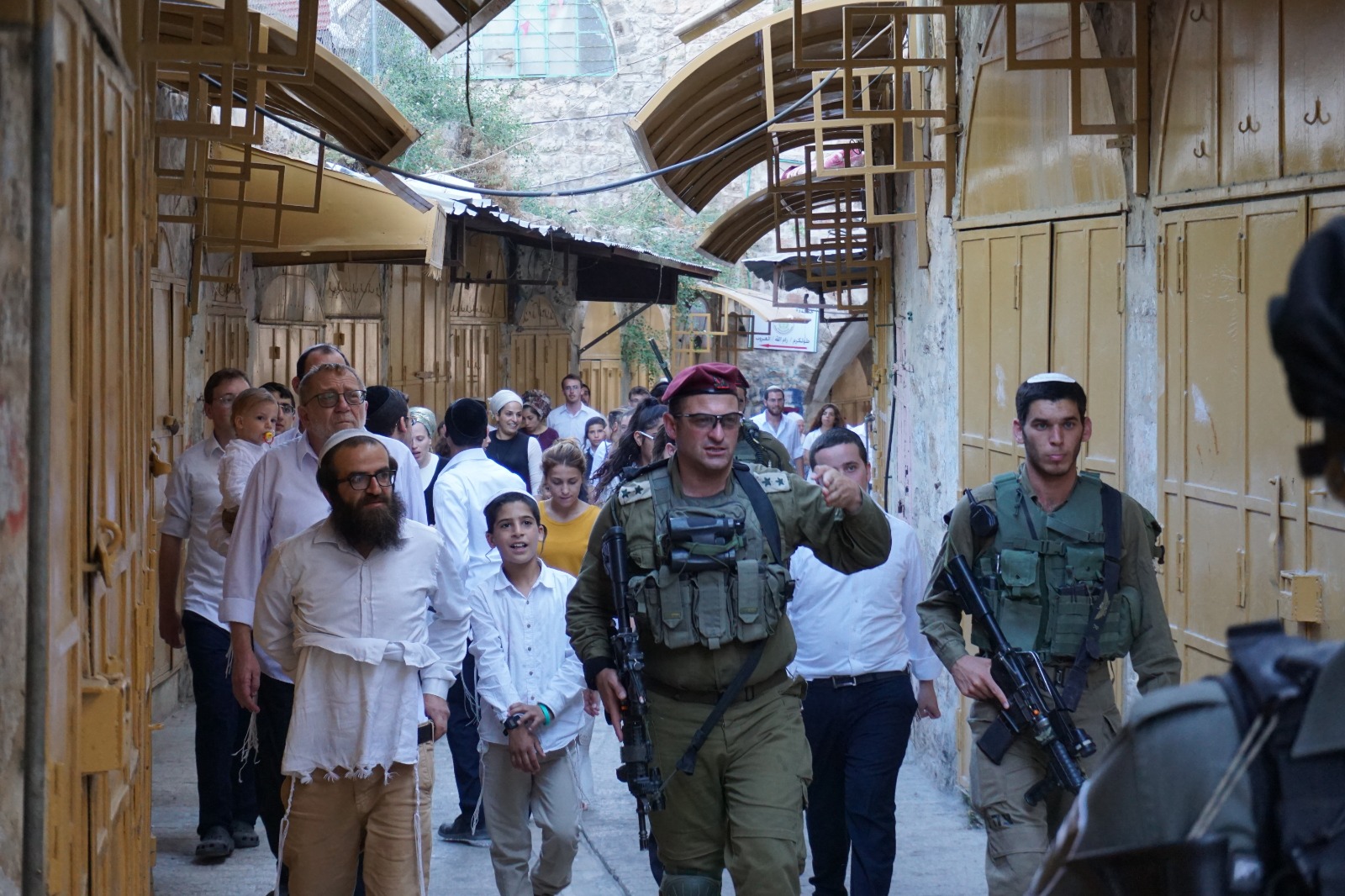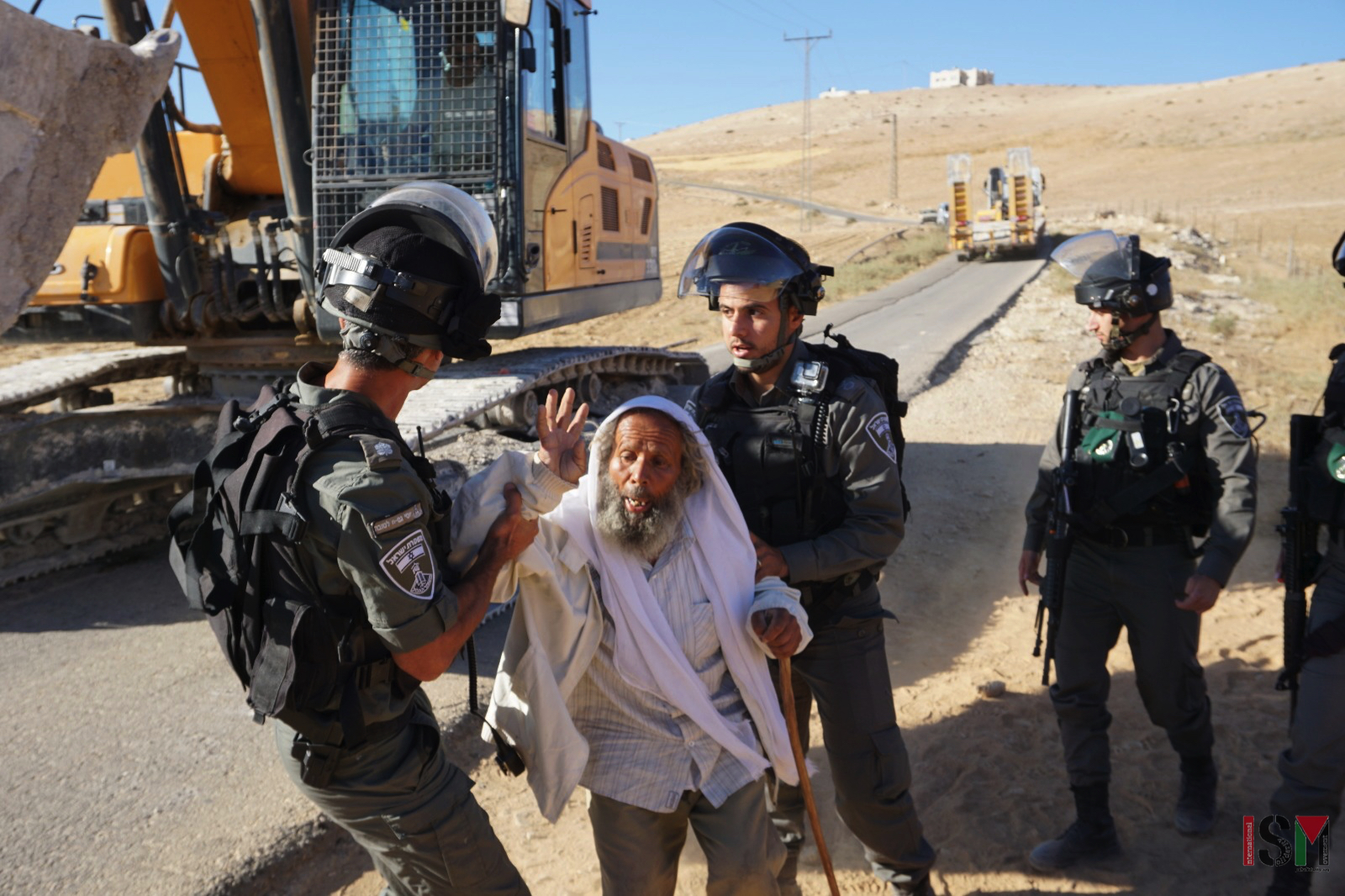Tag: Settlement
-
Water Series: IOF destroy farmland east of Hebron – ISM speaks to owner Ghassan Jaber
July 30 2019 | International Solidarity Movement | Bit Arawa, occupied Palestine This is the first of a series of reports documenting the control and devastation of water sources by Israel as a tool of oppression. On Thursday 18th July Israeli Occupation Forces (IOF) came to the Al Baqa’a area, east of Hebron, and…
-
Settler tour exemplifies the difficult reality of occupation in the Old City of Hebron – a photo essay
July 7 | International Solidarity Movement | Hebron, occupied Palestine Every Saturday, illegal Jewish settlers from around the West Bank take a “tour” of the busy souq (market) in Old City of Hebron, the busiest market street in the area since the closure of Shuhada Street. Local Palestinians believe that the Israeli authorities facilitate the…
-
Livelihoods destroyed in two days of demolitions in South Hebron Hills
July 4 | International Solidarity Movement | South Hebron Hills, occupied Palestine The South Hebron Hills have faced two consecutive days of demolitions starting early yesterday morning, with bulldozers destroying water wells and uprooting over 500 trees in two villages. An elderly Palestinian activist from Um al-Khair was also hospitalised yesterday after being violently…


